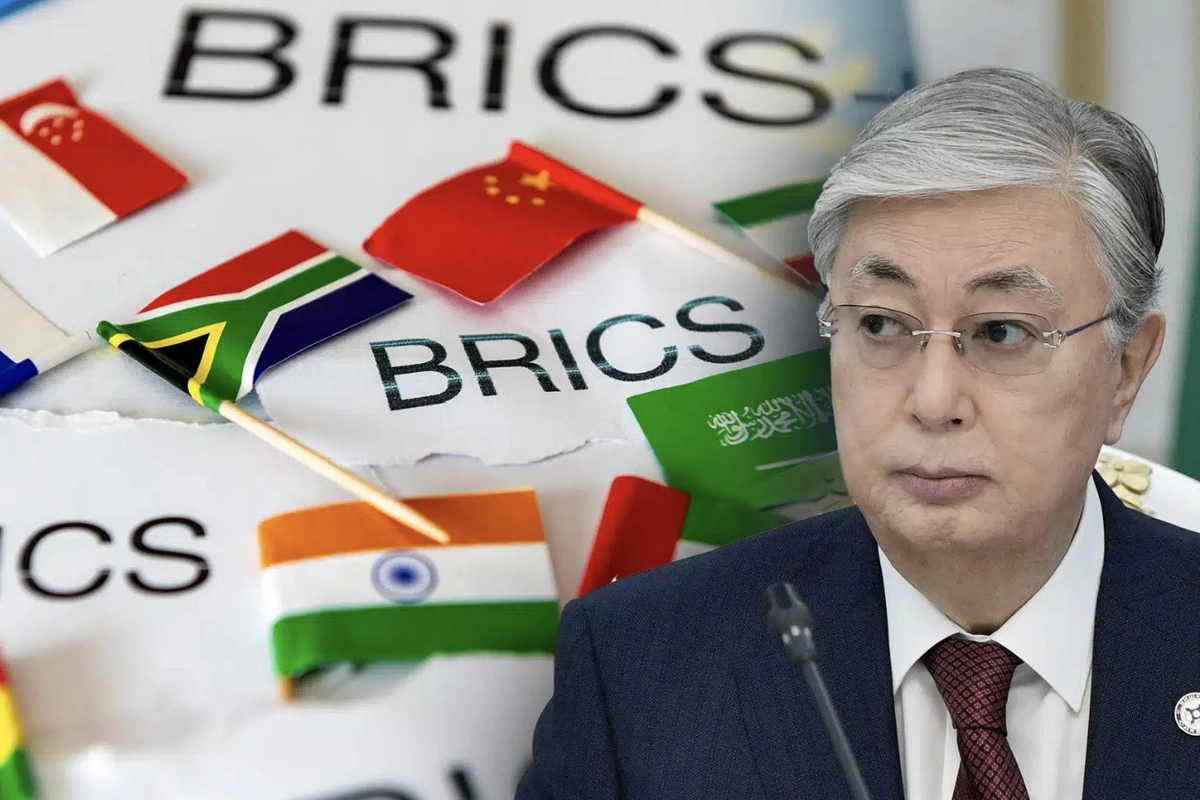
Collage by Kursiv.media, photo editor: Arthur Aleskerov
On January 1, 2025, Kazakhstan will take a significant step on the global stage by becoming an official BRICS partner country. This move is more than a diplomatic milestone; it symbolizes Kazakhstan’s nuanced approach to navigating a turbulent geopolitical landscape and redefining its economic and political priorities.
The BRICS partnership offers Kazakhstan access to vital financial and economic mechanisms, particularly the New Development Bank (NDB). This opens the door for favorable loans targeted at infrastructure and sustainable development projects, enabling the country to accelerate growth in key sectors like energy, transportation, and agriculture. More importantly, this status allows Kazakhstan to diversify its economic ties and reduce dependence on Western financial systems like SWIFT and VISA-an essential pivot amid rising global polarization.
Kazakhstan’s decision to join BRICS as a partner, rather than a full member, reflects a calculated strategy. Partner status provides flexibility, allowing the nation to maintain its independence while cautiously exploring the benefits of deeper engagement with major developing economies like China, India, and Russia. This cautious yet proactive approach aligns with President Kassym-Jomart Tokayev’s vision of Kazakhstan as a “middle power” that balances global dynamics without succumbing to the dominance of superpowers.
Championing Sovereignty in a Multipolar World
Kazakhstan’s role within BRICS is expected to align closely with its broader foreign policy objectives, particularly the emphasis on sovereignty and moderation. As a middle power, Kazakhstan advocates for a multipolar world where smaller states play a meaningful role in shaping global norms. This vision resonates with BRICS’ ideological foundation, which challenges unipolar dominance and promotes an alternative framework for international cooperation.
However, Kazakhstan’s approach is carefully calibrated to avoid the pitfalls of nationalism. By prioritizing national interests without veering into exclusionary policies, the country underscores its commitment to balanced, pragmatic engagement. Moderation, a hallmark of its geopolitical stance, ensures that Kazakhstan avoids becoming overly aligned with any one bloc.
Economic Resilience Amid Global Shifts
One of the most tangible benefits of the BRICS partnership is access to alternative financial systems. With tools like BRICS PAY offering substitutes for SWIFT, VISA, and MasterCard, Kazakhstan stands to shield itself from potential economic coercion by Western powers. This resilience is critical as global tensions escalate, particularly between the West and countries seeking to challenge the existing order.
Moreover, the partnership strengthens Kazakhstan’s ability to attract investment and pursue joint development projects with BRICS nations. The focus on infrastructure and sustainable development dovetails with the country’s long-term economic strategy, enhancing its capacity to weather external pressures.
A Path to Full Membership?
While Kazakhstan’s partnership with BRICS marks an important milestone, full membership remains an open question. The distinctions between partner status and full membership are still evolving, given that the framework was only introduced in October 2024 at the Kazan summit. For now, this new status allows Kazakhstan to explore the organization’s benefits without committing to its full structural responsibilities.
Thirteen countries, including Kazakhstan, have opted for this intermediate status, signaling a preference for strategic flexibility over direct opposition to Western hegemony. Whether Kazakhstan transitions to full membership will depend on its assessment of BRICS’ long-term viability and the geopolitical landscape.
Next Steps: From Vision to Implementation
For now, Kazakhstan’s strategy within BRICS remains undefined, with most engagements occurring through bilateral agreements or other regional frameworks like the CIS and EAEU. While President Tokayev’s initial enthusiasm for BRICS in 2023 has since tempered, the partnership still represents a valuable avenue for economic and political collaboration.
As Kazakhstan steps into its role as a BRICS partner, the coming years will test its ability to balance competing priorities, safeguard sovereignty, and contribute to a multipolar global order. Whether this partnership evolves into full membership or remains a flexible arrangement, it is clear that Kazakhstan’s engagement with BRICS is a pivotal chapter in its foreign policy journey.
Share on social media